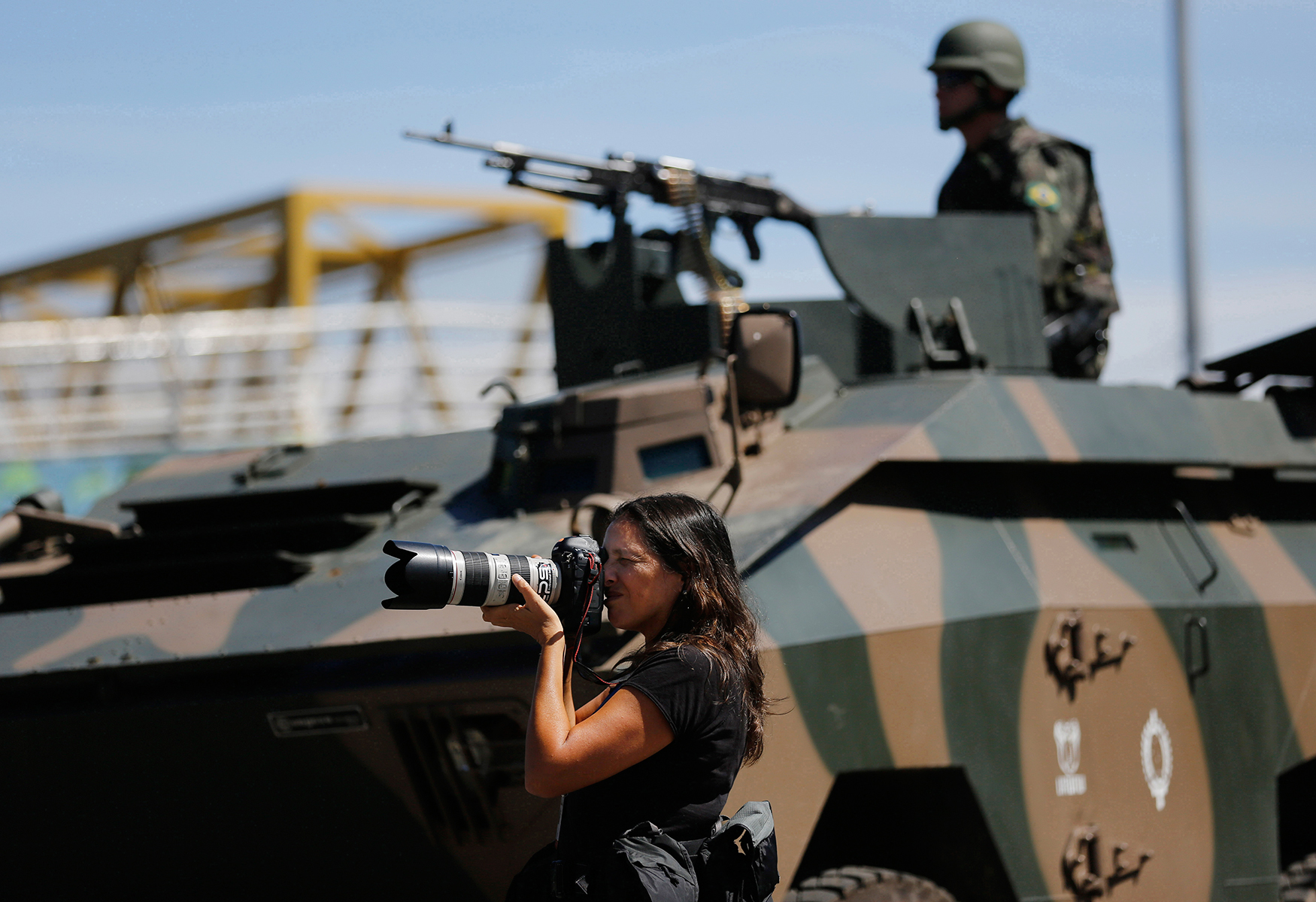When I last saw Freddie de los Santos, his mouth was ravaged ― his teeth had been blown away by the same blast that took his leg. And yet, he always smiled. The year was 2009. We were treated at Walter Reed National Military Medical Center; I had also lost a leg in southern Afghanistan. We spent months together, the soldier and the photographer, and he would tell me of his exhaustion, trauma, and nightmares.
A dozen years later, Freddie has a new life. He is a Paralympian, one of several American soldiers who rebounded from horrendous injuries in Iraq and Afghanistan to compete in the Tokyo games. And I have resumed my career with a camera, traveling the world telling stories. At times I would give it all away ― my life’s work, the prizes, and recognition, including the Pulitzer I was awarded this year ― to walk on two legs again. But I also realize the role my disability has played in shaping who I am today.
And I wonder: Can disability give us more than it has taken?
I wanted to share these reflections with those soldiers wounded in combat, to speak amputee to amputee about the capabilities we have come to possess despite our disabilities. And so I crossed the United States to talk with five Paralympians. I would not have the intimate conversation I was looking for with triathlete Melissa Stockwell, the kind shared only between two people who were missing a limb; we mainly connected as parents, trying their best to raise their kids.

When sprinter Luis Puertas and I spoke of his life before an IED in Iraq which took both of his legs, he preferred to bury the past and to look ahead to the challenges life has yet to throw at him, “I like to be by myself, I want to be by myself” he told me again and again. Cyclist Tom Davis assured me that his injuries changed his life and his family for the better ― he’s a better person, a better husband, and a father, all because of the ambush that cost him his leg. He said he wouldn’t give any of it up for the opportunity to walk again,
Freddie De Los Santos feels differently. Now when he smiles, his mouth opens up to a beautiful set of fake teeth; he has the physique of an athlete, and he moves with ease. But he said he would burn everything he has ― his home, his race bike, his paintings, the new Tesla he just bought ― to regain his legs and leave behind the ghosts of a war that haunt him day and night. Freddie De Los Santos competes during the Men’s H5 Road Race Time Trial on Day 7 of the Tokyo 2020 Paralympic Games on Aug. 31 in Tokyo.
Unlike the other swimmer, Brad Snyder lost not a limb but his eyes. I had never photographed a story about a blind person before, and I decided to deactivate the silent mode of my camera so he was conscious of each photograph I made with the click of the shutter. My lenses focus on the retinas of my subjects; Brad has no retinas, so until I turned off the feature, the camera often focused on the eyes of his guide dog, Timber. Brad told me that before losing sight, he wanted to be a nobody, anonymous to the world like so many others, to ride his motorcycle along the Pacific Coast away from his experiences in Afghanistan and toward an everyday life with a typical job.
I turned off the lights in the kitchen we were sitting in without him noticing, and for a short few moments, Brad and I were speaking together in the darkness of his world. I thought: We are, all of us, unlucky. But we are also blessed to have received treatments allowing us to continue with our lives. There are untold numbers of Afghans who were similarly maimed and were not so fortunate. And I thought: Yes, we would have lived happily anonymous lives. But because of that single accident of fate, our lives were turned upside down, and we were set on different paths to becoming other people. We died that day, if only for a few seconds, and amid the grueling chaos of war, we found peace and perhaps even happiness in death. We were brought back to lives not of our choosing, lives with a disability as our constant companion. Each of us must come to our conclusions. But I look at my life, and I am happy. Calling all HuffPost superfans!



















Leave a Reply